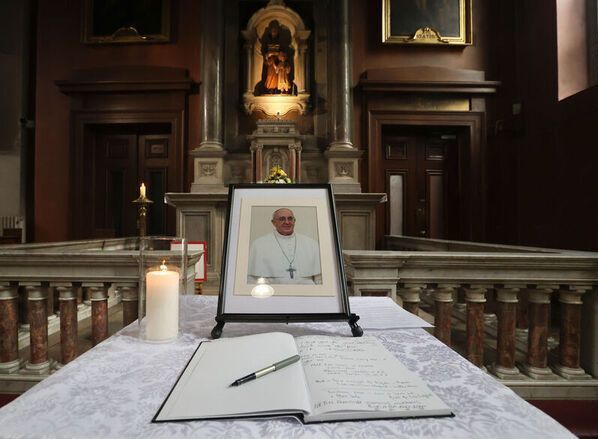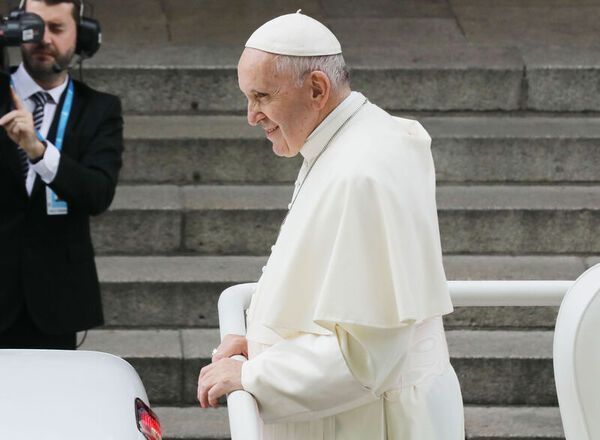Gerry Adams speaking in Carrickmore, County Tyrone, on Easter Sunday
By Gerry Adams
All across the island of Ireland, and in faraway locations in the USA, Canada, Australia and elsewhere, Irish republicans gathered over the Easter weekend to remember those who have died in the struggle for Irish freedom and to commemorate the Easter Rising 1916.
Nineteen years ago, just two days after the Good Friday Agreement was concluded, I travelled to Carrickmore for the main Tyrone Easter Commemoration.
I was back again last Sunday.
Easter 1998 came at the end of an exhausting period of intense negotiations.
The previous four years had witnessed two IRA cessations, negotiations with the Irish and British governments, and the White House, a lot of travelling, and inclusive talks which had begun in September 1997.
The Good Friday Agreement was the conclusion of that phase of the political process.
It was a defining moment - a compromise between conflicting political positions following decades of conflict.
The Agreement addressed a broad range of issues that had been previously ignored.
It dealt with constitutional issues, political matters, and institutional issues.
It put in place a mechanism to hold a border poll to address the issue of partition and to achieve democratically and peacefully Irish unity.
It also set up political structures that provided for the sharing of power while including checks and balances to prevent a recurrence of past political abuses.
The underlying ethos of the agreement was, and is, equality - a fact underlined by the use of that word 21 times in the text of the agreement.
At Eastertime 1998 the Sinn Féin leadership wasn’t sure how the Republican grassroots would respond to the agreement.
Sinn Féin makes great efforts to stay rooted in our base.
We regularly engage with our activist membership, and also the wider republican family – those people without whose active support we could not have survived the decades of war.
We were not disappointed.
The base responded with generosity and encouragement.
In Carrickmore I remember being surrounded by the families of our patriot dead, the mothers and fathers of those who had lost their lives, and the families of those still imprisoned then, and all wishing me well. They were full of hope for the future.
Almost 20 years later that hope is still alive.
It was certainly alive in Carrickmore on Sunday.
The messing that for the last two decades has frequently characterized the British and Unionist response to the agreement has not undermined the sense of empowerment that existed in 1998.
On the contrary, the stand taken by Martin McGuinness against DUP arrogance and intransigence, his rejection of any return to the status quo, and the result of the Assembly election last month, has strengthened the desire for the agreement, and in particular its commitments on rights and equality, to be implemented.
Those I spoke to in Carrickmore, no more than the tens of thousands who attended other commemorations, are not naïve.
They understand that it is the British government’s intransigence on legacy issues, and the DUP’s rejection of the principles of equality, parity of esteem and of rights, that have made it more difficult to reach a deal.
They want Sinn Féin to achieve a deal, but not at any price.
And if there is no deal then there has to be an election.
That is what the 2006 agreement between the two governments insists on, and it is what the Irish government must insist on if necessary.
Some weeks ago I wrote that unionism is at a crossroads. And it is.
The choice facing the new leader of the UUP, and the current DUP leadership, is do they stick with the failed policies of the past, of separation and segregation, or are they up for the challenge of bringing unionism in a new direction?
Can the leaders of unionism open their minds to the reality that there is a section of citizens who do not share their sense of Britishness – who have a different political identity and a different cultural ethos? Are they willing, finally, to make a genuine effort to acknowledge and accommodate this real politick?
The strategy of delay. The constant efforts to dilute the Good Friday Agreement. The refusal to respect the rights of Irish language speakers, or embrace diversity among our citizens, is the past.
It cannot be the future.
The old do-as-little-as-possible tactics of them-and-us only deepens sectarianism and discord. That position has long passed its sell-by-date.
So, the DUP leadership has some hard thinking and difficult choices to make in the days ahead. Or maybe not.
Perhaps Arlene Foster and Nigel Dodds and the DUP leadership is content to sustain a status quo that provides unionism with the pretense of domination.
Certainly, if what we have seen from the DUP in recent times continues that will only guarantee that there will be no DUP First Minister and no Executive at Stormont.
As Martin put it so succinctly: there can be no return to the status quo.
So it’s over to the DUP and UUP.
There are tough choices to be made.
Sinn Fein is up for the challenge of extending the hand of friendship as we commit ourselves again to complete the work of previous generations, the work of those we remember this Eastertime, and the work of our leader, Martin McGuinness.









